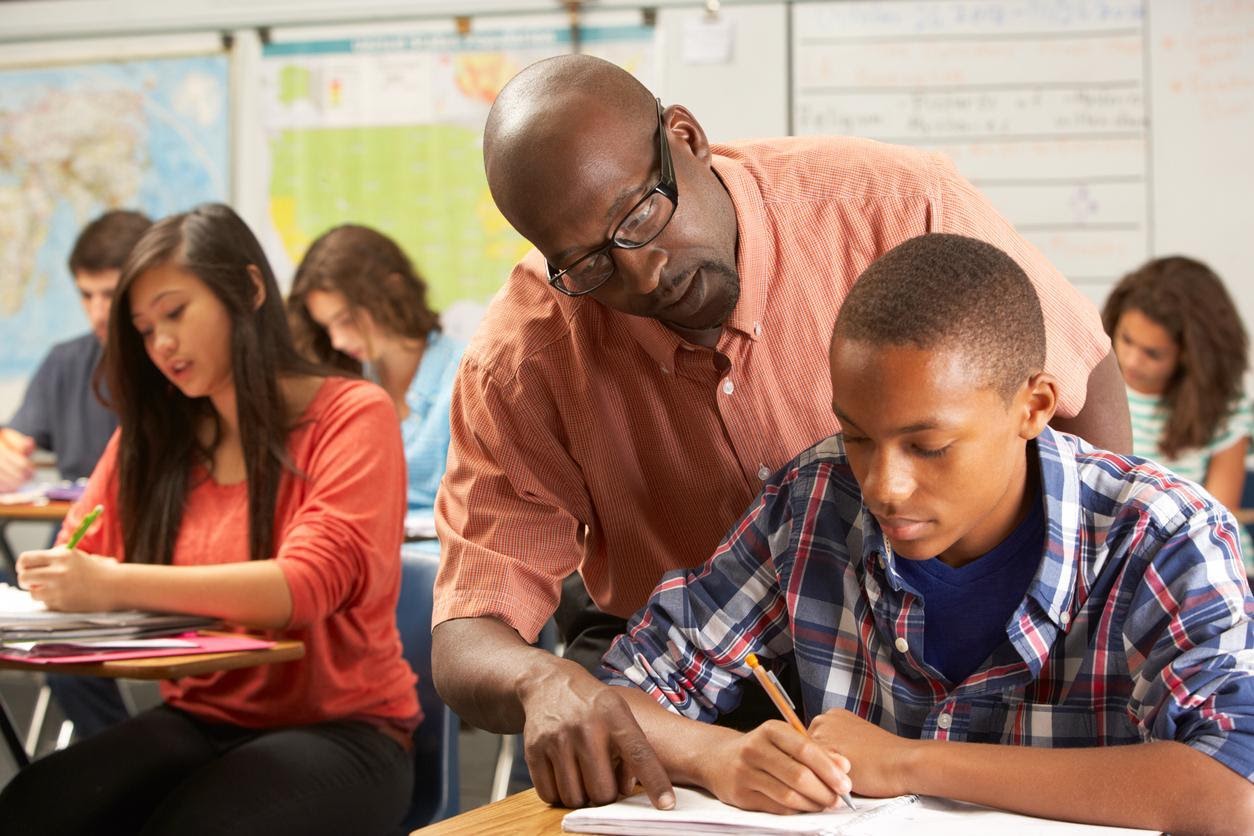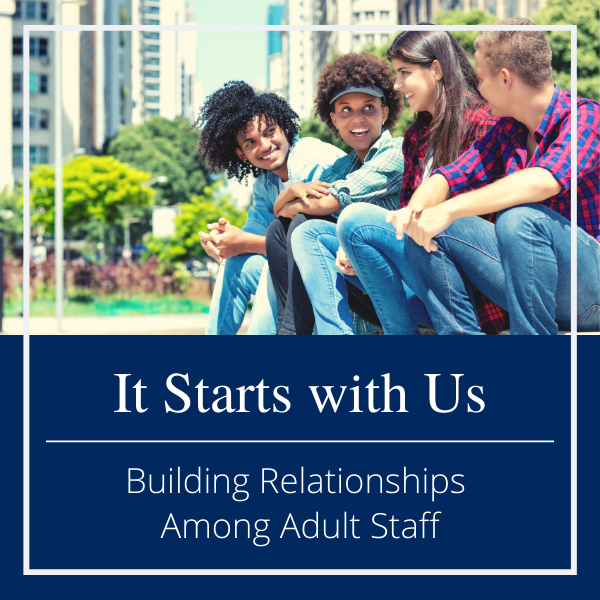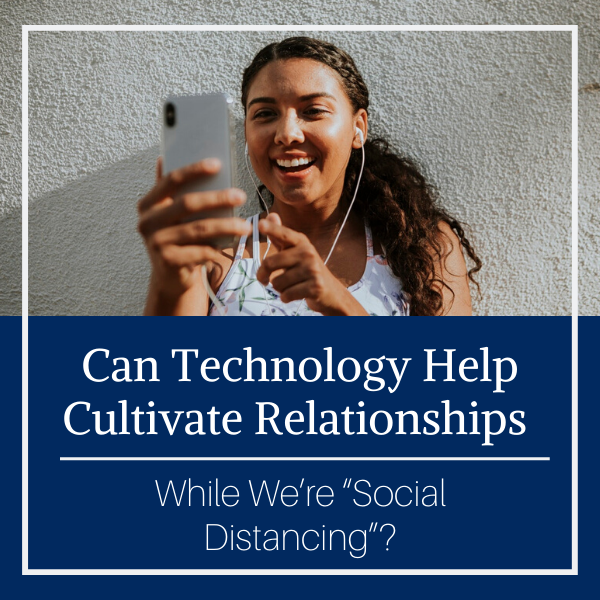Blog
Confronting Learning Loss by Building Developmental Relationships
DREAM Study finds developmental relationships propel learning, motivation
The COVID‑19 pandemic disrupted so many aspects of life, and educators experienced unprecedented challenges.
Districts, administrators, and teachers had to scramble to reinvent themselves to offer virtual and hybrid learning models to meet the needs of all students while also trying to address systemic inequities that existed long before the devastation of the pandemic.
Today, educators and leaders are tasked with finding solutions for what has been called learning loss. High numbers of students are disconnecting from school, which increases existing equity gaps.
Iit’s important to think carefully about how to re‑engage students to increase motivation and achievement.
How Can We Re‑Engage and Motivate Students?
Even before the pandemic, research consistently found that one of the most important ways to boost student achievement and learning is to focus on developmental relationships between students and teachers. Developmental relationships allow young people to discover who they are, cultivate the abilities they need to shape their own lives, and learn how to engage with and contribute to the world around them.
As districts and schools face reopening challenges, a new brief of a recent study examines data from a longitudinal study Search Institute conducted in partnership with the public schools in Bloomington, Minnesota: the Developmental Relationships Enhance Academic Motivation (DREAM) study. The findings show that developmental relationships between students and teachers propel motivation, learning, and academic achievement.
How Did We Conduct the DREAM Study?
Search Institute collected data from students and teachers during the 2017‑18 and 2018‑19 school years. We used online surveys, student focus groups, and interviews with teachers who were nominated by the focus groups. The focus groups reflected the gender, racial, ethnic, and socioeconomic demographics of the schools.
What Did We Learn from the DREAM Study?
The DREAM study looked at conditions and practices in schools that affected relationships between teachers and students—particularly those who have historically been marginalized and most affected by the pandemic, including Black, Latinx, and Indigenous students and students from low‑income backgrounds.
We asked teachers and students about the practices that helped build developmental relationships while advancing equity.
Here’s what we found:
-
Developmental relationships between students and teachers matter, especially for students from low‑income backgrounds.
-
A significant perception gap exists between students and teachers in how they rate their relationships with each other.
-
As relationships improve over the school year, students report higher motivation levels.
-
Most students report that their relationships with their teachers stay the same or get worse, especially students from low‑income backgrounds.
-
Students express clear ideas about how to improve their relationships with teachers (and teachers often agree).
The Benefits of Strong Developmental Relationships
The DREAM study supported our hypothesis: “A major resource for boosting student achievement lies with the teachers and students who build developmental relationships, which propel motivation, learning, and academic achievement.”
The Developmental Relationships Framework identifies five elements and 20 specific actions that young people experience in relationships that affect their learning, growth, and development.
Those five elements are:
-
Express care—Actions that exhibit trust and show that the young person is known and valued.
-
Challenge growth—Actions that push people to live up to their potential, take responsibility for their actions, and learn from setbacks and failures.
-
Provide support—Actions that help the other person complete tasks and achieve goals, even in difficult situations.
-
Share power—Actions that show respect, give choices, and give a voice to the other person.
-
Expand possibilities—Actions that connect the young person to people, places, and ideas that broaden their options and opportunities for the future.
Strong Relationships Predict Motivation
As districts and schools face pressure to reintegrate students into learning environments, examining motivation is key. Without motivation, students’ interest in school declines, and learning loss occurs. Here are some findings on the correlation between developmental relationships and motivation.
-
High‑quality student‑teacher developmental relationships predict motivation. Students in the top quartile of developmental relationships were 11‑18 times more likely (depending on middle versus high school, and Spring 2018 or Fall 2018) to be in the top quartile of academic motivation.
-
Developmental relationships and motivation were even more strongly linked for students who were eligible for free or reduced lunch.
-
Students who reported higher “social capital” with teachers also reported higher motivation.
-
Developmental relationships predicted higher GPAs and were linked to students being more likely to hit growth targets on standardized tests.
-
Student‑teacher developmental relationships were much stronger predictors of student motivation than students’ relationships with parents or peers.
Listening to Students and Supporting Teachers
Rather than focusing just on lost learning caused by the pandemic, we need to pay attention to the lost relationships. Restoring and deepening high‑quality developmental relationships can help young people gain the confidence and motivation they need to succeed in school and propel learning, even after the disruptions of the pandemic.
Developmental relationships are stronger when teachers have support and resources. These supports include:
-
Processes to repair relationships.
-
Open lines of communication with social workers, counselors, and administrators.
-
Additional school counselors and psychologists.
-
Content‑specific training in “what works” for students.
-
Opportunities for teachers and students to learn from each other and build relationships.
“We really appreciate that you listen to us,” is what the students in our DREAM study said about their most effective teachers. When schools, youth organizations, and communities are focused on building developmental relationships, young people have the most important resource needed for them to learn, grow, and thrive.




